
Science fiction and technology writer
Popular blog posts
Recent forum posts
Discussion Forum
Discussion forumI will be booksigning at the Surrey International Writing Festival, Saturday, Oct 26, 5:30 to 7:00 pm!
Post #: 215
Post type: Blog post
Date: 2013-10-24 13:37:35.000
Author: Jeremy Reimer
Tags: Writing, Science Fiction
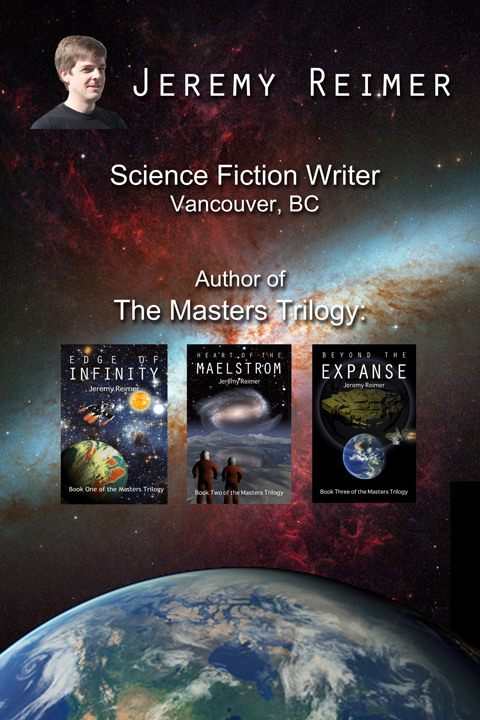
This Saturday I’ll be at the Book Fair in the Surrey International Writer’s Festival! The event is at the Sheraton Vancouver Guildford Hotel, 15269 104 Ave, in Surrey, BC. The event runs from 5:30 to 7:00 pm.
I’m humbled to be included with so many amazing writers, and I’m really looking forward to the experience. It’s my first ever book signing, so please come out and say hello!
Views: 7532
Creating the cover for Beyond the Expanse
Post #: 214
Post type: Blog post
Date: 2013-10-01 15:41:55.000
Author: Jeremy Reimer
Tags: Science Fiction, Writing
I’ve always loved science fiction covers, and even have my own favorite artists, but the cover images for science fiction classics often have little to do with the actual story. One of the great things about being an independent author is the ability to make your own covers. Each cover for my three novels represents a seminal moment in the story.
For the final novel, Beyond the Expanse, I wanted to show a dramatic moment with the Pegasus confronting a Master worldship in front of the planet Earth. First, I drew a quick sketch to get a sense of the layout I wanted. Lots of erasing and moving stuff around, so it looks messy, but it does the job!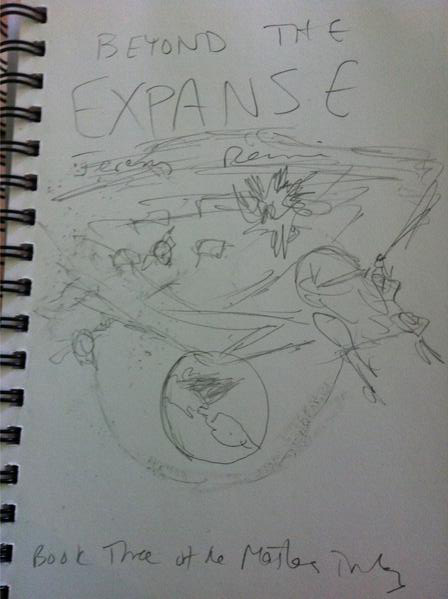
Next, I found a nice high-resolution image of Earth from NASA. Then I went into Photoshop and set the background color and placed the Earth where I wanted with the title text. For the other two novels I had a nebula for the background. For the Earth there’s obviously no nebula, but I deliberately made the background completely black, with no stars visible.
This is technically accurate (even as far away as the Moon, you don’t see stars because the light from the Earth drowns them out) but there’s a thematic reason also: this is the final novel, the ultimate showdown, and a black background is more stark and dramatic.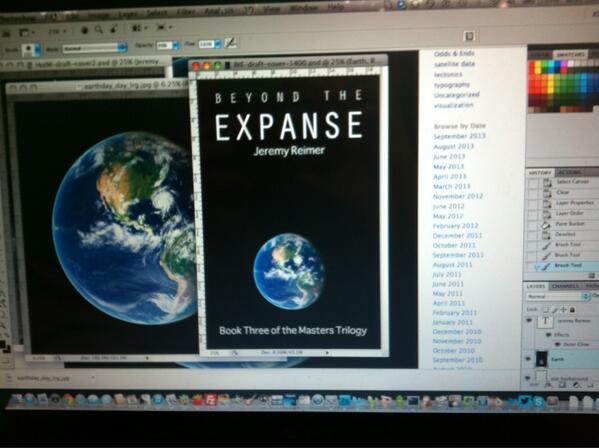
Now, I need a Master worldship! I’ve never drawn one, so it’s time to go into Blender and make one! I just start with a cube, divide it in half and mirror it, then extrude, move, scale, and rotate segments.
Finally I import the rendered image into Photoshop, color it yellow, and make a bubble field effect around it. I put a shadow on the Earth to give some indication of how massively huge this ship is. Then I put in an image of the Pegasus. It’s actually far in front of the worldship (or else you wouldn’t even be able to see it) but it’s difficult to indicate this. In any case, the small size of the Pegasus next to the worldship gives a sense of how one-sided this fight would be.
I’m thinking about adding more stuff to the image, such as flying fighters being chased by missiles and some explosions, but I’m not sure if it would add or detract from the final cover. I could also texture the Master worldship to make it a little more detailed, but there are diminishing returns here. What do you think?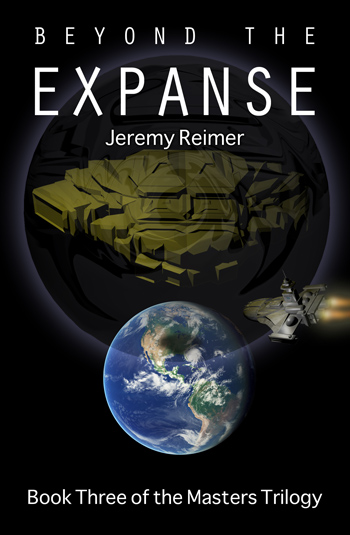
Views: 7045
Knotty Geeks Episode 32 - To the Moon Part III: Characters and Arcs
Post #: 213
Post type: Podcast
Date: 2013-09-23 18:32:19.000
Author: Jeremy Reimer
Tags: Knotty Geeks
In this episode, we return to our outlining of our upcoming short story "We Choose to Go..." in which an engineer starts a Kickstarter in order to win the Google Lunar X-Prize in 2014.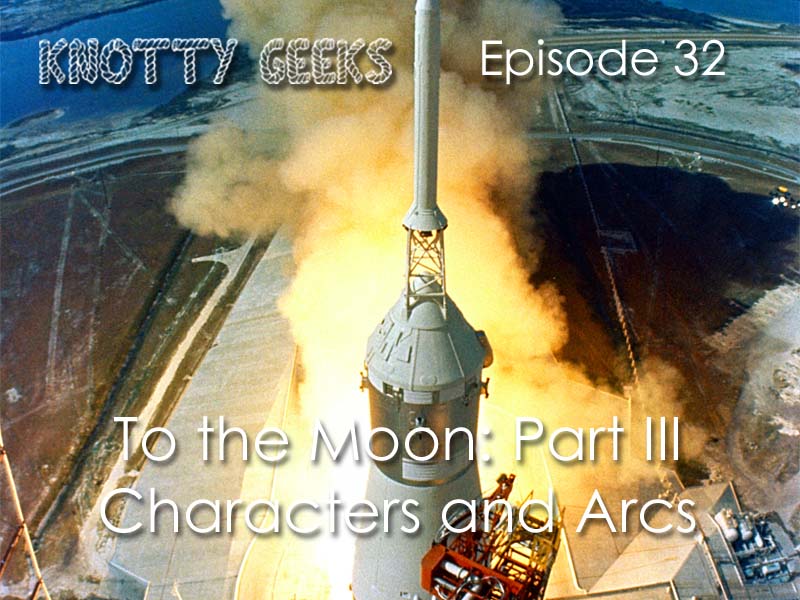
We look at the main character, Rich Gupta, and come up with suitable strengths and character flaws, then try to figure out how his character arc will tie together with the story arc for the first serialized story and beyond.
uploads/Knotty_Geeks_Episode_32.mp3" />
Knotty_Geeks_Episode_32.mp3" width="290" height="24" />
Download MP3 file directly
Views: 6890
Review: Jobs (2013) starring Ashton Kutcher
Post #: 212
Post type: Blog post
Date: 2013-09-19 13:36:27.000
Author: Jeremy Reimer
Tags: Reviews, Movies
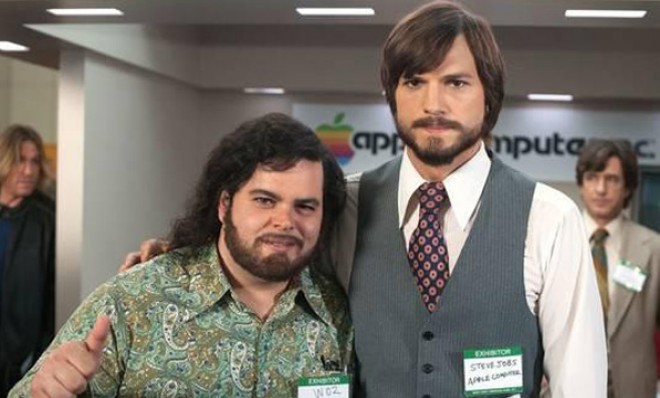
Steve Jobs lived a fascinating life, and there has been no shortage of writers wanting to tell his story. The latest attempt, the movie Jobs (2013) starring Ashton Kutcher, is a mixed bag. The movie comes so close to being great, but misses where it matters.
What’s wrong with it? I don’t think it’s the acting. Ashton Kutcher is actually an underrated actor, and he clearly spent a lot of time observing Jobs and mimicking his posture, voice, and mannerisms. He did a really good job conveying the intensity of Jobs’ emotions and outbursts. The other actors were also excellent—Dermot Mulroney was particularly good as Mike Markula. There were some nice cinematic shots and decent music.
The only thing left to criticize is the writing. The screenwriter, Matt Whitely, was given one of the most interesting businessmen and visionaries in modern history and failed to tell a compelling story about him.
The movie starts off in 2001 at an “Apple staff meeting” that looks more like a typical Jobs product launch event. An older Jobs introduces the iPod with his usual stirring words about how it will “change the world”, and the crowd bursts into applause.
Then we immediately jump back in time to the 1970s. Jobs is in university, talking to his friend Daniel about how he dropped out but is still auditing classes. Then, out of nowhere, a man appears and steals Jobs in order to talk at him. Who is he? The movie never explains it. I’ll call him “Professor Exposition” because that’s what he does. He then disappears forever.
The third person we meet in a movie shouldn’t be a throwaway character. The audience needs to get on board quickly to figure out what the movie is about. Instead, Jobs wanders off and meets a girl named Julie, who he immediately sleeps with, and then she’s never seen again! Instead, Jobs takes the acid tablets that Julie gave him and shares them with Daniel and his girlfriend (who, despite later giving birth to his child, is never actually named in the film).
After taking the acid, Jobs complains about being adopted and then goes dancing in the fields while hearing music. This acid trip scene is interspersed with shots of him sitting in university classes watching bad educational films about IBM computers. It feels clumsy and thrown together. Then he and Daniel go to India, which means another montage that goes on a little too long.
These are supposed to be formative experiences that shaped Jobs’ entire life, but there is no coherent message in the montages.
The movie then jumps to Steve working at Atari and upsetting the engineers there, and then leads to him getting his friend Steve Wozniak to build a Breakout game, emphasizing how Jobs screwed his friend out of $2500. Then Woz shows him the computer he’s working on, which will become the Apple I.
The essential points of these scenes are factual, although the movie gets a lot of little details wrong. The worst offender is the Homebrew scene.
Homebrew was essentially the incubator for Silicon Valley’s home computer industry in the mid 1970s. In the movie, Woz has to be forced by Jobs to demonstrate his computer, whereas in reality Woz had already showed it there himself before Jobs knew about it. Worse than that, the movie shows the Homebrew audience as being completely unimpressed with the Apple I, when it was at least on par with other products that were being shown at the time. The nerd in me screamed when the presenter after Woz began introducing a RISC chip, which wouldn’t be invented until the 80’s at Stanford University!
Some scenes are decent. I enjoyed seeing Jobs negotiate with Paul Terrell, the owner of the hobbyist Byte Shop, to buy 50 Apple I boards even when he thought he was getting fully assembled computers. The introduction of Rod Holt, the iconoclastic power supply engineer, was well done. I liked the part where Mike Markula shows up, meets the Apple employees working out of Jobs’ parents’ garage, and gives them the funding to start Apple Computer. But the scene where Steve denies the parentage of his daughter by his nameless girlfriend seems thrown in and doesn’t connect to the rest of the narrative.
Then, with no buildup, we jump first to Steve giving a speech at the Westcoast Computer Faire, and then immediately jump again to Apple as a large company.
At this point, the movie goes full throttle in promoting the legend of Steve as inventor-of-everything. Xerox PARC isn’t mentioned at all; instead the idea of the GUI seems to have sprung directly from Jobs’ head. He callously fires an engineer who doesn’t share his vision about fonts. In fact, the Lisa computer mimicked a lot of what PARC had already done. Jobs’ genius was to get his engineers to refine and polish these ideas.
We get some scenes where Jobs screws his friend Daniel out of founder’s stock right before the Apple initial public stock offering. These scenes further the storyline of how Jobs was an asshole, but doesn’t do anything to explain why he was that way, or how his behavior affected his life. Instead, we suddenly get… DUN DUN DUN… the antagonist, in the form of venture capitalist Arthur Rock.
Rock is portrayed as a caricature, an evil ignoramus hell-bent on destroying everything Apple and Jobs stood for. We don’t get any nuance about how Steve’s views didn’t always line up with reality. Instead, we get ridiculous lines from Rock like: “IBM has moved on to minidex (??) and so should we” and “I think it’s time to reconsider the viability of the personal computer”. At one point he says, after the introduction of the Lisa and the Macintosh, that “IBM beat us to a better product by two years!” This is all utter nonsense and babbling, but the movie just rolls right along to Jobs’ hiring of John Sculley from Pepsi to be the new CEO of Apple. Then we get a confused series of events leading up to Jobs being ousted by the board in favor of Sculley.
This moment is arguably the most important part of Jobs’ life, and the movie makes a muddle out of it. We need to know exactly why Jobs would be cast out of the company he founded. Sure, it happens a lot in real life for no real reason, but this is a story. It’s the job of the writer to make sense of things.
Instead, we just skip ahead to 1997 (Steve’s creation of NeXT gets a single sentence, and Pixar gets nothing at all) and see poor Gil Amelio struggling with Apple’s decline and inviting Jobs back into the company. Mike Markula arranges for Steve to come back in a consulting role and a new chairman of the board sets up a new coup to let Steve take control again. We see Steve “discovering” industrial designer Johnny Ive hiding in an office somewhere, and he tells him to put the speakers on the inside of the iMac, presumably the single most important design decision that will make the computer a smash success. “But Steve, they’ll never let us do that!” Really? He also takes the time to complain about his “piece of junk” Sony Discman, which I guess is supposed to tie in with the movie’s first scene. It’s suggesting, of course, that Steve “invented” the iPod in his head, fully-formed, at that moment. You know, the way he invented the GUI and everything else.
In fact, Steve even gets to invent (and personally record) the “Here’s to the strange ones” commercial that was actually voiced by Richard Dreyfuss. He can do anything, it seems.
Steve then gets rid of Mike Markula and the rest of the board, gives some more inspiring speeches, and we fade to black with the text “In 2012 Apple became the most valuable company in the world”. Neat! Would have been nice to have seen how Steve accomplished that. It would have been even better to have seen how Steve was able to do it only because he had learned from his past experiences and his mistakes.
Ultimately, every movie has to find the core of the story it wants to tell. It seems that this movie wanted to tell the story of how Steve singlehandedly invented Apple Computer, had it stolen away by evil people, and then took it back. That’s a story, sure, but it’s not the most interesting one. It doesn’t tell us anything about Steve the person. It doesn’t tell us how he had to learn when to be an asshole and when not to be. It doesn’t show him struggling in the wilderness during his NeXT years to learn these lessons.
Jobs (2013) is a movie that is done in by poor writing. It didn’t have to be this way. We can only hope that the upcoming Aaron Sorkin movie does a better job telling the story of an interesting man’s life that is more engaging to watch.
Views: 7887
Knotty Geeks Episode 31 - Art Through Constraints
Post #: 211
Post type: Podcast
Date: 2013-09-16 14:48:03.000
Author: Jeremy Reimer
Tags: Knotty Geeks
In this episode, Terry and I talk about how constraints can improve any kind of art, including writing. Then we segue on to examples of artists who have continually striven to improve, such as Mike Krahulik of Penny Arcade.
That leads to a discussion of all sorts of things, and eventually we get back to our ongoing short story, now titled "We Choose To Go..."
The tree above is from the park where we recorded the episode.
uploads/Knotty_Geeks_Episode_31.mp3" />
Knotty_Geeks_Episode_31.mp3" width="290" height="24" />
Download .MP3 file directly
Notes from the show:
TED book Six word challenge
http://www.amazon.com/Things-Dont-Have-Complicated-ebook/dp/B00APTWKV8
Penny Arcade art improvement
http://www.penny-arcade.com/2011/11/18/jonathan-gabriel-an-art-retrospective
Strip Search
http://www.penny-arcade.com/strip-search/archive
Did you know? Seven short TED videos
http://www.ted.com/playlists/19/did_you_know.html
What does the fox say?
http://www.youtube.com/watch?v=jofNR_WkoCE
How to create strong characters
http://blog.karenwoodward.org/2013/09/how-to-create-strong-characters.html
Views: 6459
Why I’m no longer a Tech Entrepreneur
Post #: 210
Post type: Blog post
Date: 2013-09-13 14:05:40.000
Author: Jeremy Reimer
Tags: Entrepreneur, Software, Writing
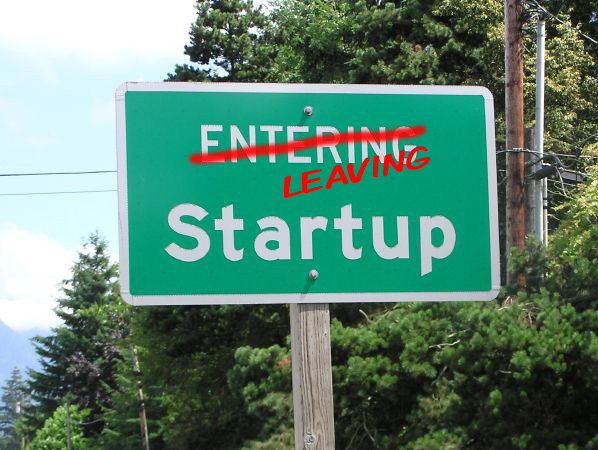
I’ve read lots of fascinating posts on the web about startups that failed. Maybe the idea was too far ahead of its time, or the cofounders didn’t get along. Usually the startup just ran out of money. Even if you’re lucky and get funding, it won’t last forever. It’s hard to build up enough revenue to get the rocket off the ground.
My story is a little different. I’m quitting before I’ve even really gotten started.
I had a lunch meeting yesterday with a friend regarding possible web development work for his company. The meeting was amicable, but there wasn’t any work available for me. When I came home I was disappointed, naturally, but it got me thinking about what I really want to do with my life.
One thing that’s not going to work is working at a regular company as a regular programmer. The language I’ve fallen in love with, newLISP, isn’t something that I can just go and get a job using. The industry has standardized on VB.NET, C#, PHP, Java, and to a much lesser extent Ruby on Rails. I can code in any of these if I had to, but they won’t make me happy, and if I’m unhappy I’m not likely to be productive and useful. I’d always be thinking about how much faster and more efficiently I could be coding in my own little niche language. I have real-world data to back this up. At my last job I was actually able to keep up in features (my application was better in performance and had fewer bugs) with a development team of five people including one manager who were rewriting my application using C#.
So when I thought about this, and believe me I thought about it a lot, I figured that a better plan would be to start out on my own. After all, if I can keep up with a team of five people, and only have to pay my own way, won’t that be a lot easier? It seemed like a natural fit. I would blaze a trail and develop amazing new applications on my own! Be my own boss!
What I didn’t realize is that being the boss is actually no fun, at least for me. It’s easy to complain about your boss when it’s another person. When your own boss is you, you’re perpetually mad at yourself. Why are you not working harder? Why aren’t you figuring out ways to make money? Why don’t you spend more time coding?
I spent amazingly little time coding. Because I was so efficient, I could get a few days worth of work done in a couple of hours. But then I’d stop. I set up a bunch of websites and got some neat features working on them, and then I’d waste time watching Starcraft or playing games. Why was I doing this?
I was thinking about it yesterday, when I went on my mid-morning run. I enjoy running, but I’m not a good runner. My lung capacity is pretty low, and I don’t push myself hard enough to improve my fitness level that rapidly. Starting a business is kind of like saying you want to run, not just for fun, but as a way to make a living. You need to be absolutely dedicated to it. You need to be a little crazy to run yourself right to the edge, to risk serious injury in pursuit of ever-increasing goals.
I remember running past long swathes of wild blackberry bushes in August and thinking that I should really go out and spend a few days just collecting them to freeze and make blackberry crisp. Instead, I would just grab a few berries as I ran, savoring the sweet taste but watching as thousands of berries just went to waste, picked by no-one, washed away by the rains and the end of summer.
It’s a lot like how I approached starting a business. It was fun to have a little taste of it, but I didn’t want to put in the incredible level of effort it would require to do it properly. And of course, there’s always the fear of failing. If you didn’t put in your best effort, you can’t be too disappointed in yourself, right? I know a few professional Starcraft players who had this approach. It didn’t end well for them. Success takes hard work. You have to slog through it to get what you really want.
But when I thought about it some more, it’s not like I was this lazy slob who didn’t put any effort into anything. I did write a whole web development framework from scratch. I did launch a couple of websites. I learned a lot and gained valuable skills that I can use anywhere that I go in the future. I can’t think of this as a waste of time.
Oh, and there was one other tiny little thing that I did over the last few months. I wrote an entire novel.
The truth is, while I was struggling to find motivation to be a software entrepreneur, I was already running a startup of sorts. Being an author is a lot like starting a business. You have to put in the effort to make a decent product (in this case, books and short stories), you have to spend a ridiculous amount of time on marketing (authors have to relentlessly self-promote on Twitter and blogs and their own website, as well as doing giveaways and appearing on radio shows and podcasts and writing panels) and you have to do all of these things consistently to try and grow a tiny revenue stream into something that (hopefully) becomes profitable.
It turns out that all this time I was doing all of this, and doing it consistently. I wrote 1,000 words every single day, without fail, and every day I would read blogs about marketing and go on Twitter and try to get the word out about my writing. Even though it wasn’t generating much revenue, it was more than my web-based businesses were doing (which was zero!)
At some point, I had to decide what I really wanted to do. Which would I keep as a hobby and which would I take seriously as a profession?
My wife, who knows me better than anyone in the world, including myself, found a way to help me decide.
She held me from behind, and put her hands on my chest, and squeezed gently.
“How do you feel about programming?” she asked.
I had to answer honestly. “I feel like I’m being crushed,” I said.
“Okay, now let’s try this again.” She released me and then grabbed me again in the same way. “Now how do you feel about writing?”
I wasn’t sure. “I don’t feel anything,” I said. But she wouldn’t leave it at that. She did the exercise again. I still felt like I was being crushed when I thought about programming as a career. But the feeling when I thought about writing was different.
“I feel like I’m uncrushable,” I said.
So I had my answer.
Now, I’m not going to stop programming. I’m still planning on developing JetCondo, for example, my RSS reading platform. But I’m going to develop it for myself, as a hobby, and not try and make it my livelihood. I’ll still work on newLISP on Rockets as well, and if any future employer can get some benefit out of my work with these tools, great. But it’s not necessary. Ironically now that I’ve made this decision I feel like working on it more than I did before. Isn’t that weird?
It also doesn’t mean that now I’m going to take on the stress and pressure of making my fiction writing be my sole income. The artist Lynda Barry had a great quote about this: she compared art to a beautiful baby, and how artists are immediately expected to jump on the baby’s back and yell “I’m riding you all the way to the bank!” It doesn’t work that way. You have to care for and nurture the baby, and when it grows up maybe it can take care of you. In the mean time, there are other ways to make a living.
Writing is my baby. It’s time to nurture it and let it grow.
Views: 6680
My interview with Smashwords!
Post #: 209
Post type: Blog post
Date: 2013-09-03 16:21:22.000
Author: Jeremy Reimer
Tags: Writing, Science Fiction
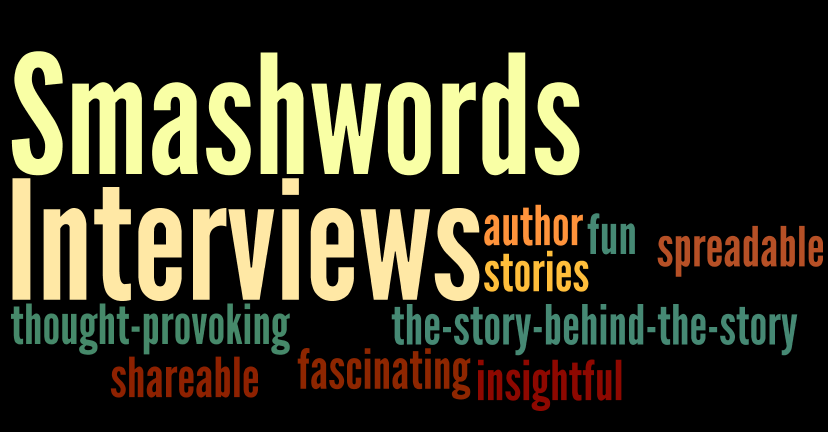
Smashwords is an amazing site, and it’s been invaluable to me in publishing and promoting my fiction. They have a new feature called Smashwords Interviews where the author can answer a series of questions and have the interview instantly appear on the site. It’s pretty cool!
I actually had more fun doing this interview than I thought I would. Rather than being a chore, it was a fun trip back into my childhood to find some of the reasons I started writing in the first place.
I hope you enjoy reading it!
https://www.smashwords.com/interview/jeremyreimer
Views: 5983
Knotty Geeks Episode 30 - To the Moon Part 2: Starting a Story
Post #: 208
Post type: Podcast
Date: 2013-08-20 11:35:34.000
Author: Jeremy Reimer
Tags: Knotty Geeks
In this episode of Knotty Geeks, we take the premise we discussed in Episode 28 and use it as a springboard to creating a short science fiction story.
We go through, step by step, the basics on how a writer creates a short story from scratch, starting from setting, then characters, then motivations, then plot.
Going through the process with another person was a new experience for me and I found it quite enjoyable and fun. I hope you do too!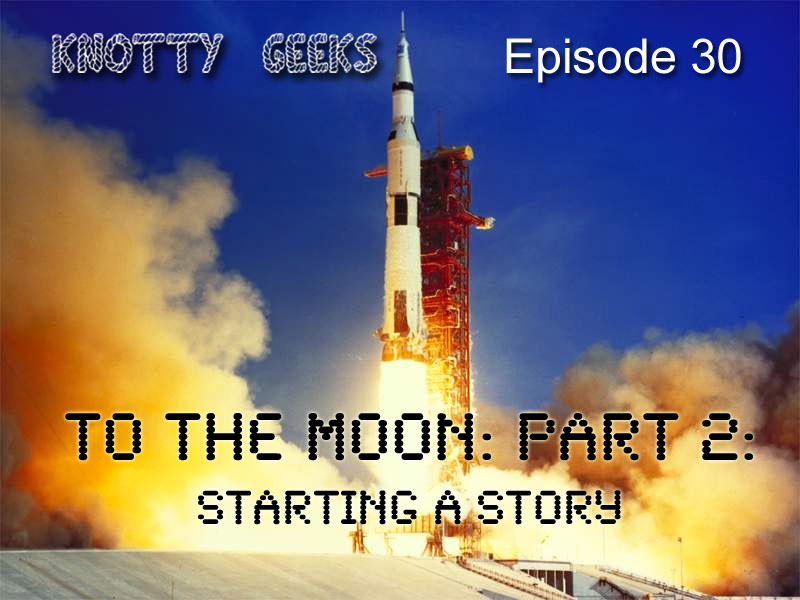
uploads/Knotty_Geeks_Episode_30.mp3" />
Knotty_Geeks_Episode_30.mp3" width="290" height="24" />
Download MP3 file directly
Knotty Geeks on iTunes!
Views: 6696
Knotty Geeks Episode 29 - Trek Wars
Post #: 206
Post type: Podcast
Date: 2013-08-06 15:10:41.000
Author: Jeremy Reimer
Tags: Knotty Geeks
In this episode of Knotty Geeks, we are joined by local Star Trek expert Brian Palfrey, and we talk a little about the new Star Trek movie, the failings of the Star Wars prequels, and generally let our Geek-o-Meters(tm) go to 11. 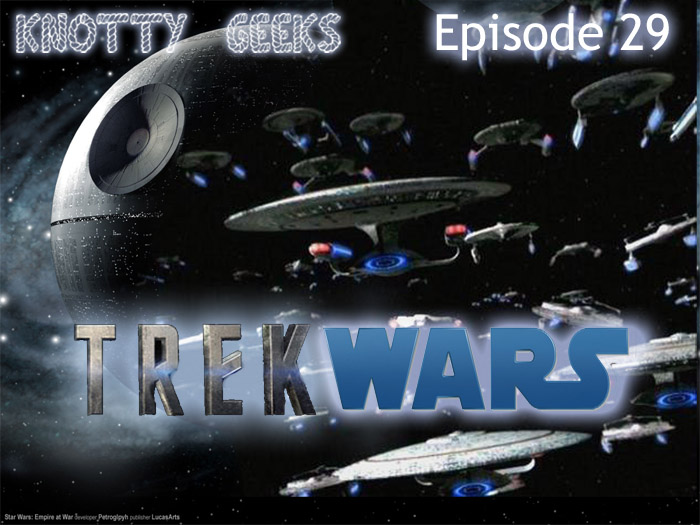
It’s a crazy romp through the two most popular science fiction universes, and we even mention Schlock Mercenary!
Links from the show:
Howard’s best 2013 Movie Ratings
Red Letter Media reviews Star Wars Prequels
Boycott of Ender’s Game Movie
No True Scotsman
Star Trek Series Writer’s Guides and original scripts
BONUS: The Cat that doesn’t like this thing in particular
uploads/Knotty_Geeks_Episode_29.mp3" />
Knotty_Geeks_Episode_29.mp3" width="290" height="24" />
Download MP3 file directly
Knotty Geeks on iTunes!
Views: 6779
The job of a science fiction writer
Post #: 204
Post type: Blog post
Date: 2013-07-30 12:26:49.000
Author: Jeremy Reimer
Tags: Space, Science Fiction
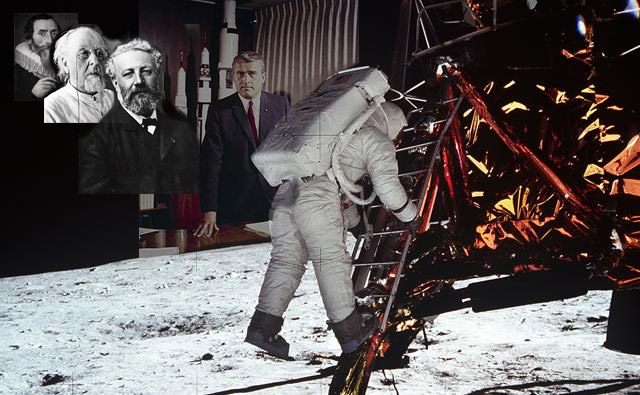
As writers, it’s our job to inspire as well as entertain. But science fiction writers have an additional duty, and it’s a monumental one.
Some of the earliest science fiction writers were scientists. Johannes Kepler, who figured out the laws of planetary motion and thus paved the way for Isaac Newton and modern physics, wrote a short story in 1630 about a trip to the moon. It was called Somnium, Latin for “The Dream”, and it featured a young student traveling to the Moon. Some consider this work the very first science fiction story, for even though it featured supernatural elements, it treated the setting with scientific vigor. The traveler was affected by gravity and observed planetary motion as understood by Copernicus. Of course, in Kepler’s time there was no conceivable scientific way of actually getting to the Moon, but it was the dream that mattered. The dream wouldn’t go away.
In 1865, Jules Verne wrote a story called From the Earth to the Moon, which took the technological advances of the recent American Civil War and applied them to peaceful pursuits. While his idea for a massive cannon to launch space travelers wasn’t actually practical (the muzzle would have to be too long and the acceleration too great for human survival) he made an attempt to do some rough physics calculations to make the story seem plausible.
In 1903, Russian scientist Konstantin Tsiolkovsky published a refutation of the physics in the popular tale, and was inspired by the story to ask the question: if cannons wouldn’t work, what would? Out of this came the theory of rocketry: Tsiolkovsky calculated a relationship between the mass of a rocket, its fuel, and its velocity. At the time no foreign scientists appreciated his work, but a German translation of his book found its way to a young engineer by the name of Wernher Von Braun, who filled it with his own notes and calculations. After Germany’s defeat in World War II, Von Braun led the American team that finally landed a man on the moon in 1969.
This is only one example of science fiction influencing reality. Young men who watched Star Trek as boys would often go on to invent some of the things they saw on the television show: talking computers, portable communication devices, and hand-held electronic displays. While it may seem as if progress in space travel has slowed since men landed on the Moon, people like Elon Musk—who wrote science fiction-themed computer games as a kid—are now developing the beginning of commercial space travel with SpaceX. There is a direct line between imagining something is possible and making it possible.
You can’t go to space without the appropriate technology, but you don’t get the idea for the technology without science fiction. Instead of predicting the future, the goal for science fiction writers should be to invent it. How else are we going to get there?
Views: 7136
So who am I?
I'm a writer and programmer. I write science fiction stories and novels.
I am the writer for the upcoming documentary series Arcade Dreams.
I also write technology articles for Ars Technica.
I'm the creator of newLISP on Rockets, a web development framework and blog application.
- Email: jeremy.reimer@gmail.com
Topics
3D Modeling
About Me
Amiga
Articles
Audio
Blockchain
Blog
Blogs
Book Reviews
Book review
Comics
Computers
Computers Microhistory
Computing
Conventions
Crypto
Daily update
Entrepreneur
Family
Forum post
Gaming
Gaming Starcraft
Gaming metaverse
Internet
Jeremy Birthday
Kickstarter
Knotty Geeks
Knotty Geeks (video)
Market Share
Masters Trilogy
Monarch
Movies
My Non-Fiction
My Science Fiction
NewLISP Blog
Novels
OSY
Operating Systems
Pets
Poll
Reviews
Science Fiction
Servers
Software
Software Operating Systems
Space
Star Gamer
Star Trek
Starcraft
Television
Testing
Toys Childhood
Wedding Marriage
Work
Work Life
World
Writing
 RSS Feed for this blog
RSS Feed for this blog